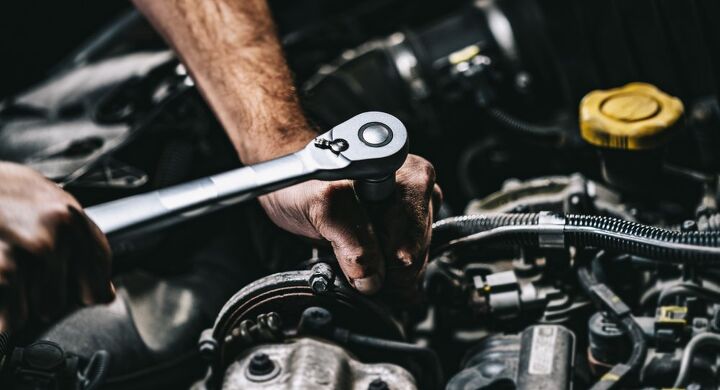#InternalCombustion
Gas War: California Finalizes Combustion Ban Plan
The California Air Resources Board (CARB) is supposed to vote on stricter rules that will ban the sale of new gasoline-powered cars by 2035 later today. But we already know what the results will be because the organization is about as mentally homogeneous as a eusocial insect colony and is strongly supported by the state government. So let’s cut to the chase and hear what California has to look forward to before seeing what kind of combustion bans are taking place in other parts of the world.
Study Suggests Time Plays Important Factor in Repair Costs for EVs Vs ICEs
Since the hottest news surrounding the automotive industry today happens to be rolling updates about supply shortages, factory downtime, and how it’s not impacting manufacturing profits as much as anticipated, I’ve been diving back into studies and research pertaining to the future of the automotive industry. It’s a little more enjoyable for my own gray matter to process and might provide readers with a touch more to ponder than another story about how automakers are stalling production because an insufficient number of doodads were placed on a boat that’s waiting off the California coastline.
Earlier this week, we examined research exploring how much electric vehicles actually cost to run and that theme will persist. There’s a new study suggesting EVs boast lower repair bills than gasoline-driven alternatives. But there’s an interesting tipping point that occurs early in a vehicle’s lifespan that makes it happen. Before that, it’s cheaper on average to maintain something equipped with an internal combustion engine.
Study: Do EVs Really Cost Less to Run Than Internal Combustion Cars?
With the volume having been turned down on just about every business sector imaginable, automakers have spent most of this year explaining how supply chain shortages are impacting production and making promises about electric vehicles. However, the rhetoric surrounding electrification has gotten so aggressive that it’s fast becoming another contentious issue, leading to vicious arguments as people square up to take sides. Part of this is due to the enterprising way in which zero-emission vehicles are being marketed and subsequently embraced by world leaders that don’t know jack about the manufacturing or the environment. Much of the discourse surrounding electrification (pro or con) lacks nuance and leads to businesses promising whatever they can in an effort to obtain your unquestioning belief.
For example, EVs are frequently promoted as boasting substantially lower operating costs due to there being no reliance on liquid fuel. Though finding the truth actually requires one to make a comparative analysis while taking into account how, where, and what you’re driving. There’s even a new study out from the Anderson Economic Group (AEG) attempting to determine the true savings of swapping to an EV where the researchers ultimately decided gasoline-powered cars were actually easier on the wallet. However, that likewise requires loads of clarifying context and conditional factors.
Europe Proposes Banning Internal Combustion Cars By 2035
Last week, the European Union proposed banning the sale of all new internal combustion vehicles starting in 2035. With several member nations proposing restrictions in the coming years, EU leadership feels it can accelerate the timeline to force electric vehicles as the de facto mode of transportation. The European Commission has suggested making it illegal to sell gas or diesel-powered vehicles in 14 years, with aims to reduce CO2 emissions produced by automobiles by 55 percent (vs 2021 levels) by 2030.
But countries that still produce vehicles have expressed reservations about the scheduling. France absolutely agrees with mandating restrictions that would reduce greenhouse emissions. Though President Emmanuel Macron’s office has been pressing that hybrid vehicles would be able to do much of the heavy lifting and fears that an outright ban of internal combustion could hamstring the industry if conducted too early. Germany, which manufacturers more vehicles than other EU member nations, is of a similar mind.




















Recent Comments